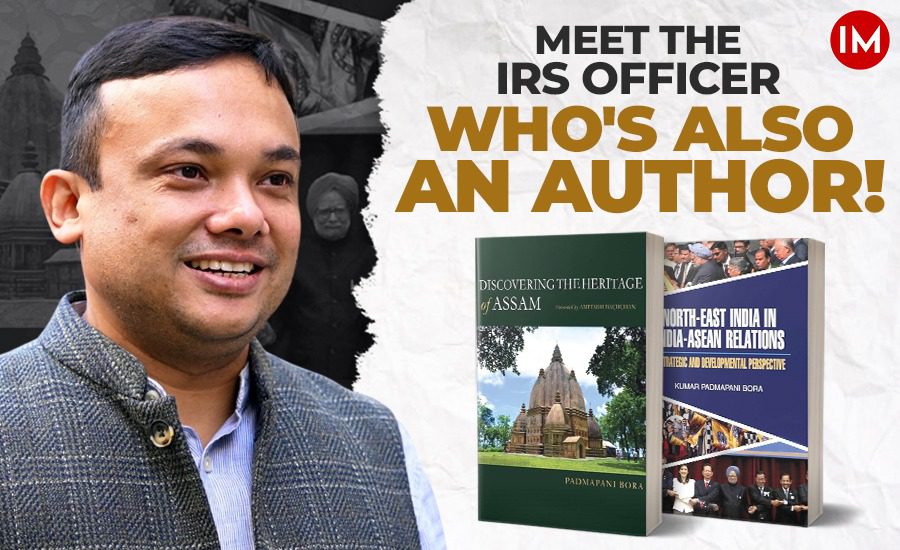IRS officer Padmapani Bora’s journey into the Indian Revenue Service (IRS) and subsequent roles in both central and state governments reflect a commitment not only to administrative excellence but also to cultural preservation and promotion. In an exclusive interview with Indian Masterminds, Mr Bora (2009 batch) shared about his UPSC journey, his books and his postings.
Watch the video here:
With over 16 years of service, Mr Bora’s career has been marked by a diverse array of experiences that highlight the intersection of governance and cultural heritage, particularly in the context of Assam and Northeast India.
His decision to pursue civil services was rooted in a childhood aspiration nurtured by his observations of societal dynamics and a desire to contribute to public service. His educational trajectory, from Guwahati to Jawaharlal Nehru University (JNU) in Delhi, exposed him to a diverse student community where discussions on civil services and governance further fuelled his ambitions.
Entering the IRS through the rigorous UPSC examination, Mr Bora’s initial posting in the Income Tax Department provided him with a platform to delve into complex issues such as tax evasion. Transitioning into central deputation with the Ministry of Textiles and subsequently to roles in the state government, including overseeing tourism and infrastructure projects, broadened his administrative canvas.
Beyond his administrative acumen, Mr Bora is also a published author, contributing significantly to the understanding and promotion of Northeast India’s cultural richness.
Outside of his professional endeavours, Mr Bora’s wife, a noted classical dancer, plays a pivotal role in promoting Sattriya dance, a classical form indigenous to Assam. As IRS officer Padmapani Bora looks ahead, his message to aspiring civil servants resonates with clarity: dedication, focused study, and a steadfast commitment to public service are indispensable.

































